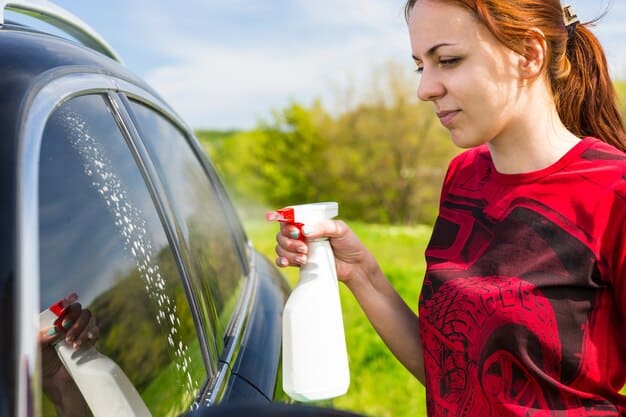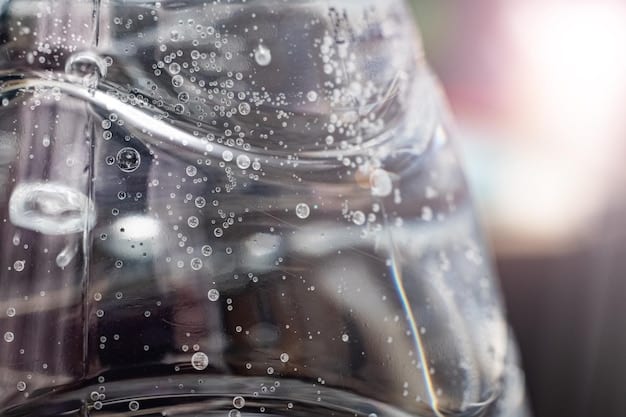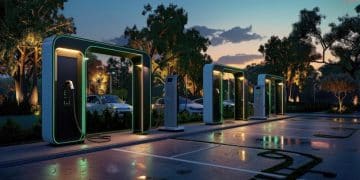The Environmental Impact of Car Detailing: Eco-Friendly Products and Practices for 2025

The Environmental Impact of Car Detailing: Eco-Friendly Products and Practices for 2025 is a growing concern. This article explores sustainable methods, eco-friendly products, and innovative practices to minimize the industry’s environmental footprint by 2025.
The automotive detailing industry, while dedicated to keeping vehicles in pristine condition, often relies on products and practices that significantly impact the environment. As we look ahead to 2025, it’s crucial to address the environmental impact of car detailing and adopt more sustainable approaches.
This guide explores eco-friendly products and practices that can transform car detailing into a greener, more responsible industry. By understanding the challenges and embracing innovative solutions, we can minimize the environmental impact of car detailing and create a future where vehicle care and environmental stewardship coexist harmoniously. Join us as we navigate the path toward eco-friendly car detailing practices for 2025.
Understanding the Current Environmental Impact of Car Detailing
Traditional car detailing practices often involve harsh chemicals and excessive water consumption, leading to significant environmental concerns. Understanding these impacts is the first step toward adopting more sustainable solutions.
The use of volatile organic compounds (VOCs) in many detailing products contributes to air pollution, while wastewater runoff contaminates local water sources. These issues highlight the urgent need for change within the industry and a shift towards more eco-conscious methods to mitigate the environmental impact of car detailing.
The Chemical Culprits
Many conventional car detailing products contain harmful chemicals that pose risks to both human health and the environment. These include:
- Solvents: Often used for degreasing and cleaning, solvents can release VOCs into the air, contributing to smog and respiratory issues.
- Phosphates: Found in some detergents, phosphates can lead to eutrophication in water bodies, disrupting aquatic ecosystems.
- Ammonia: A common ingredient in cleaners, ammonia can cause respiratory irritation and contribute to air pollution.
Water Usage and Waste
Traditional car detailing can be incredibly water-intensive, with each wash using dozens of gallons of water. This can strain local water resources, especially in drought-prone areas. Additionally, the wastewater generated often contains pollutants that require treatment before being released back into the environment.
To effectively address the environmental impact of car detailing, it’s essential to prioritize measures that minimize water consumption and prevent the release of pollutants into water systems.

Eco-Friendly Products for Car Detailing in 2025
Switching to eco-friendly products is a fundamental step in reducing the environmental impact of car detailing. These products are formulated with biodegradable ingredients and sustainable packaging, minimizing harm to the environment.
By opting for plant-based cleaners, waterless wash solutions, and recycled materials, detailers can significantly reduce their ecological footprint, paving the way for a more sustainable future. Here’s a closer look at some of the best eco-friendly products available in 2025.
Plant-Based Cleaners
Plant-based cleaners are formulated with ingredients derived from renewable resources, making them safer for the environment and human health. Look for products that are:
- Biodegradable: These cleaners break down naturally, reducing the risk of long-term pollution.
- Non-toxic: Free from harsh chemicals, plant-based cleaners are gentle on the skin and respiratory system.
- Effective: Despite being eco-friendly, these cleaners provide excellent cleaning power for various car surfaces.
Waterless Wash Solutions
Waterless wash solutions offer a convenient and environmentally friendly alternative to traditional car washing. These products use specialized formulas that encapsulate dirt and grime, allowing them to be safely wiped away without the need for rinsing. By using waterless solutions, detailers can conserve significant amounts of water and reduce the risk of water pollution. When considering the environmental impact of car detailing, waterless washing is often a highly beneficial solution.
Recycled and Sustainable Packaging
Packaging plays a significant role in the environmental impact of car detailing. Eco-conscious brands are increasingly using recycled materials and sustainable packaging options, such as:
- Recycled plastic: Made from post-consumer waste, recycled plastic reduces the demand for new plastic production.
- Biodegradable packaging: These materials break down naturally, minimizing waste in landfills.
- Concentrated formulas: Concentrated products require less packaging and reduce transportation emissions.
Choosing products with eco-friendly packaging contributes to a circular economy and helps reduce the overall environmental footprint of car detailing.
Implementing Eco-Friendly Practices in Car Detailing Businesses
Beyond using eco-friendly products, car detailing businesses can adopt various practices to minimize their environmental impact. These include water-saving techniques, energy-efficient equipment, and waste reduction strategies.
By integrating sustainable practices into their operations, businesses can not only reduce their environmental footprint but also attract environmentally conscious customers. Let’s explore some of the most effective eco-friendly practices for car detailing businesses.
Water-Saving Techniques: Reducing the Environmental Impact of Car Detailing Through Conservation
Conserving water is paramount for minimizing the environmental impact of car detailing. Some effective techniques include:
- Using low-flow nozzles: These nozzles reduce water consumption without sacrificing cleaning power.
- Recycling water: Implementing water recycling systems allows businesses to reuse water for multiple washes, significantly reducing water usage.
- Training staff: Educating employees on water-saving techniques ensures that they are actively involved in conservation efforts.
Energy-Efficient Equipment
Investing in energy-efficient equipment can help car detailing businesses reduce their carbon footprint. Consider:
- LED lighting: LED lights consume significantly less energy than traditional lighting options.
- Energy-efficient vacuums: Look for vacuums with high energy ratings to reduce electricity consumption.
- Solar panels: Installing solar panels can provide a renewable energy source for powering the business.
By making these upgrades, car detailing businesses can lower their energy bills and reduce their reliance on fossil fuels. This will further mitigate the environmental impact of car detailing.
Waste Reduction Strategies
Reducing waste is essential for creating a more sustainable car detailing industry. Strategies include:
- Using reusable microfiber cloths: Microfiber cloths can be washed and reused multiple times, reducing the need for disposable options.
- Proper disposal of chemicals: Follow local regulations for the safe disposal of used chemicals and cleaning products.
- Recycling programs: Implement recycling programs for paper, plastic, and other recyclable materials.
By prioritizing waste reduction, businesses can minimize their contribution to landfills and promote a more circular economy.

The Future of Eco-Friendly Car Detailing: Innovations for 2025
As technology advances, the future of eco-friendly car detailing holds exciting possibilities. Innovations include advanced cleaning technologies, AI-powered solutions, and sustainable business models.
These advancements promise to further reduce the environmental impact of car detailing and create a more sustainable industry. Here’s a glimpse into what the future may hold.
Advanced Cleaning Technologies
New cleaning technologies are emerging that offer more efficient and environmentally friendly alternatives to traditional methods. These include:
- Ultrasonic Cleaning: This technology uses sound waves to remove dirt and grime without the need for harsh chemicals or excessive water.
- Steam Cleaning: Steam cleaning uses high-temperature steam to sanitize and clean surfaces, reducing the need for chemical cleaners.
- Electrostatic Sprayers: These sprayers apply a fine mist of cleaning solution that adheres to surfaces, reducing waste and improving coverage.
AI-Powered Solutions
Artificial intelligence (AI) can play a significant role in optimizing car detailing processes and reducing their environmental impact. For instance:
- AI-powered water management: Systems can monitor water usage and adjust flow rates to minimize waste.
- Predictive maintenance: AI can predict when equipment needs maintenance, reducing downtime and energy consumption.
- Personalized cleaning plans: AI can analyze vehicle conditions and recommend the most efficient and eco-friendly cleaning solutions.
AI-driven practices can help create more efficient and sustainable car detailing operations.
Sustainable Business Models
Innovative business models are also contributing to the growth of eco-friendly car detailing. Examples include:
- Mobile detailing services: Mobile services reduce the need for customers to travel, lowering emissions and fuel consumption.
- Subscription-based detailing: These models encourage regular maintenance, reducing the need for intensive cleaning and harsh chemicals.
- Partnerships with eco-friendly suppliers: Collaborating with suppliers that prioritize sustainability helps promote a greener supply chain.
By embracing these new sustainable business models, car detailing businesses can lead the way in environmental stewardship.
Consumer Role in Promoting Eco-Friendly Car Detailing
Consumers play a vital role in driving the adoption of eco-friendly detailing practices. By making informed choices and supporting businesses that prioritize sustainability, individuals can contribute to a greener car care industry.
Together, we can reduce the environmental impact of car detailing. Here are steps that consumers can take to promote eco-friendly car detailing.
Choosing Eco-Friendly Detailing Services
When selecting a car detailing service, look for businesses that:
- Use eco-friendly products: Inquire about the types of cleaning products used and prioritize those that are plant-based and biodegradable.
- Implement water-saving techniques: Ask about water conservation efforts, such as low-flow nozzles and water recycling systems.
- Have sustainable practices: Choose businesses that prioritize waste reduction and energy efficiency.
Supporting Sustainable Brands
Consumers can also support sustainable brands by purchasing eco-friendly car care products for at-home detailing. Look for:
- Products with eco-labels: Certifications like EPA Safer Choice indicate that a product meets certain environmental and health standards.
- Concentrated formulas: Concentrated products reduce packaging and transportation emissions.
- Reusable containers: Opt for products that come in reusable or refillable containers.
Advocating for Change
Consumers can also advocate for change by:
- Sharing information: Educate friends and family about the importance of eco-friendly car detailing.
- Leaving reviews: Provide feedback to businesses about their environmental practices.
- Supporting policies: Advocate for policies that promote sustainable business practices in the car care industry.
By actively engaging in these efforts, consumers can help create a more sustainable and environmentally responsible car detailing industry.
| Key Point | Brief Description |
|---|---|
| 🌱 Eco-Friendly Products | Plant-based cleaners and waterless wash solutions reduce environmental impact. |
| 💧 Water Conservation | Techniques like low-flow nozzles and water recycling minimize water usage. |
| 💡 Energy Efficiency | LED lighting and energy-efficient equipment lower carbon footprint. |
| ♻️ Waste Reduction | Reusable cloths and proper chemical disposal reduce landfill waste. |
Frequently Asked Questions
Traditional car detailing often involves the use of harsh chemicals and excessive water consumption, leading to air and water pollution. Addressing the environmental impact of car detailing involves minimizing these.
Eco-friendly alternatives include plant-based cleaners, waterless wash solutions, and products with recycled or biodegradable packaging. These options reduce the use of harmful chemicals and minimize waste.
Car detailing businesses can reduce water consumption by using low-flow nozzles, recycling water through filtration systems, and training staff on water-saving techniques. These combined efforts can reduce **the environmental impact of car detailing** immensely
Consumers can support eco-friendly car detailing by choosing services that use sustainable products, advocating for change, and purchasing eco-labeled car care products for at-home use.
By 2025, expect to see more advanced cleaning technologies like ultrasonic and steam cleaning, AI-powered water management systems, and the rise of sustainable business models within the environmental impact of car detailing.
Conclusion
As we move closer to 2025, the integration of eco-friendly products and practices in car detailing is not just a trend but a necessity. Addressing the environmental impact of car detailing requires a collective effort from businesses, consumers, and policymakers.
By embracing sustainable solutions and advocating for change, we can create a future where vehicle care and environmental stewardship coexist harmoniously. Together, we can drive the automotive detailing industry towards a greener, more responsible future.





